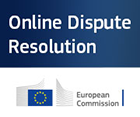Invoice fraud
Invoice fraud is a very misleading and dangerous form of fraud. Scammers intercept an invoice you are expecting, destroy it and send you a faked copy instead.
Imagine you’ve just ordered a new kitchen. Fraudsters intercept your paper or digital invoice, destroy it and send you a forged copy in its place. They replace the account number of the kitchen manufacturer with their own account number, so instead of going to the rightful beneficiary, your money goes to the scammers.
Often, victims don’t detect invoice fraud until they receive an official reminder from the real supplier.
Avoiding invoice fraud
Always compare the bank account on the invoice with the account on the order form or on the supplier’s official website, especially when a large sum of money is involved. If the account number on the invoice differs, contact the seller via the details on their website.
Have you been caught out nonetheless? Or do you suspect you may have been the victim of invoice fraud? Inform your bank and the real seller immediately, file a complaint with the police and notifie the Economic Inspection from the SPF Economy via its platform ConsumerConnect.


